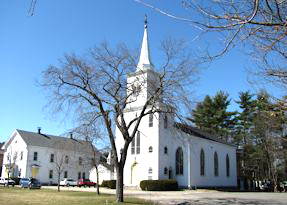Prophetic Pastoral Care Corner
By Rev. Michelle Walsh, March 8, 2024
Rev. Clyde came to know and respect the work of the Louis D. Brown Peace Institute through my own engagement with them. For nearly 18 years, I led an urban youth ministry program known as Stand High/Stand United with the Unitarian Universalist Urban Ministry in Boston. I was a young white adult, only age 29, at the time of its creation in 1991 in response to what were then the youngest victims of gang-related violence in Boston – Korey Grant, age 15, and Charles Copney, age 11. Sadly, Charles would not long remain the very youngest victim. My more direct involvement with the Peace Institute came later with the loss of my god-daughter’s nephew, Kenny Hall, to gun violence as well at age 17, in 2006 – just about one month before I was to see the UUA’s Ministerial Fellowship Committee for preliminary fellowship authorization toward ordination. The sermon I prepared for them spoke to the impact of this event in my own life and the life of my youth ministry.
Becoming part of a survivor family in the aftermath of homicide has shaped my life work and ministry profoundly. I would study the practices of the Peace Institute (as well as the practices of the Knoxville UU congregation after a church shooting) in my doctoral work at Boston University’s School of Theology. The title of my ongoing column here at FPUU – Prophetic Pastoral Care Corner – is derived from the title of my PhD dissertation as learned that social justice work is deeply intertwined with pastoral care practices when it is successful and sustainable. I was grateful that the work of that dissertation became of interest to an international center for the study of lived religion in Amsterdam, and they selected my dissertation to become their first book in a new international series on lived religion. The book’s name became Violent Trauma, Culture, and Power: An Interdisciplinary Exploration in Lived Religion.
We continue to live in violent and troubling times, with war abroad and threats to democracy here. My lived experiences working in urban ministry continue to ground me in my analysis of our need as Unitarian Universalists to be both prophetic (oriented toward social justice) and pastoral (caring for one another in sustainable ways). The Peace Institute’s ability to sustain their passion and commitment for well over a quarter century now has been one guiding light example for me. I truly hope most of you had an opportunity to hear Alexandra in person this past Sunday and to witness the power of this young woman as she rose into her mother’s life work. I hope many of you also are able to support the work of the Peace Institute and to join us on Mother’s Day in the walk from Dorchester to Boston’s City Hall with hundreds of survivor families. May the courage and inspiration continue!

